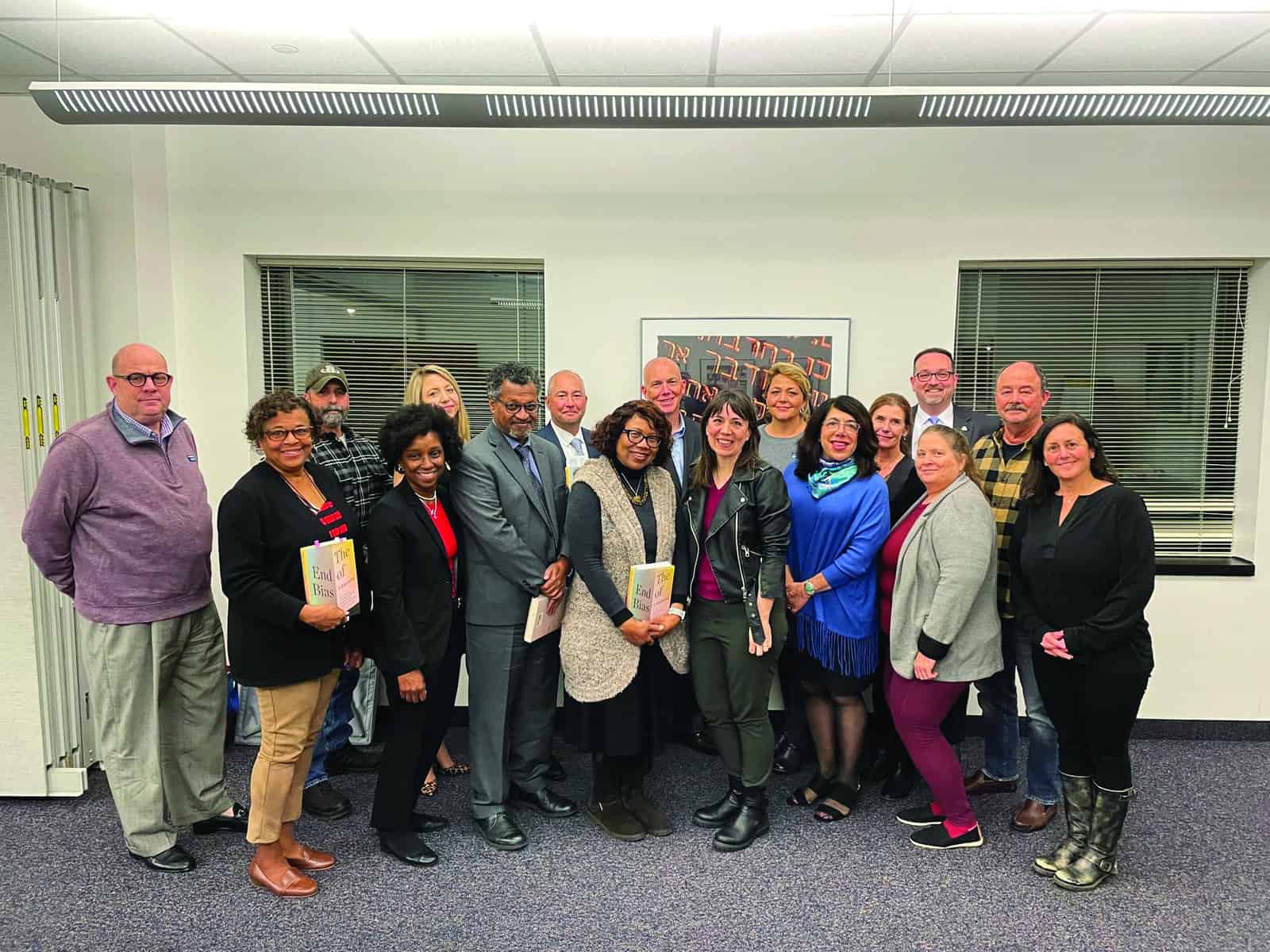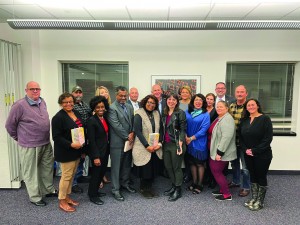For many people, discussions about a book conjure notions of a Book Club—a social gathering of friends to converse amiably about a creative, enjoyable read, possibly one that offers an escape from the daily round of life.
A group of intrepid readers gathered at the Sandler Family Campus for a trio of community discussions this fall with a decidedly different approach. They came from a range of professions across Hampton Roads, and most were not well acquainted with each other. And the book under discussion over three intense sessions was anything but escapist reading.
The End of Bias: A Beginning, by Jessica Nordell, takes a scientific approach to exploring ways to eradicate unintentional bias and discrimination that, as the book demonstrates, permeates the fundamental institutions of our society—schools, hospitals, government, and law enforcement. The author is a science writer whose work has appeared in the New York Times, the Atlantic, and the New Republic, and she immersed herself in the topic for a decade in order to write the book, which includes more than 50 pages of notes at the back.
The local discussion offered a probing investigation of the book’s evidence, arguments, and proposed solutions, all with a local lens: How and where does bias show up in Hampton Roads institutions? Are the book’s approaches useful for this region?
The discussions were organized as a joint initiative of the Lee and Bernard Jaffe Family Jewish Book Festival; the Jewish Community Relations Council of the United Jewish Federation of Tidewater; and the Virginia Center for Inclusive Communities (VCIC). The moderator was Jonathan Zur, president and CEO of the VCIC, a nonprofit that organizes workshops, retreats, and customized programs to help organizations build more inclusive cultures. VCIC has chapters and offices across Virginia, including one in Hampton Roads based at Virginia Wesleyan University.
While many books have been published on the topic of societal bias, Zur says that Nordell’s depth of inquiry made it stand out. “I found the emphasis on well-researched and evidence-based practices to be especially valuable in The End of Bias,” he says. “There are not a lot of books about bias that have the level of rigor, while also being conversational and accessible in tone. Another helpful aspect of the book was the range of contexts offered. It was interesting to explore how to combat bias in education, healthcare, law enforcement, business, and so many other sectors.”
The range of contexts in the book helped spur lively engagement on the part of participants, who became increasingly comfortable over the course of the series in sharing their professional and personal experiences. Some of the stories elicited emotional responses from those who shared their own or family members’ painful experiences of bias or prejudice.
“Because the book considered so many sectors, it seemed like everyone present had an entry point into the discussion,” Zur says. “I especially appreciated our discussion about interpersonal and institutional responses, as well as hearing the ways that our own lived experiences shape our understanding of and responses to bias.”
Nordell attended the final session on Thursday, December 8, which she noted was a rare interactive experience with readers of the book. She then participated in a public conversation with Zur as part of the book festival, which delved into the intensity of her research and her level of personal involvement with the topic, including surprising moments when she had to acknowledge her own unconscious bias.
Esther Diskin is a member of the Jewish Community Relations Council of the United Jewish Federation of Tidewater and a member of the Tidewater Chapter of the VCIC.
To learn more about the Jewish Community Relations Council of the United Jewish Federation of Tidewater, visit JewishVA.org/JCRC.
–Esther Diskin


